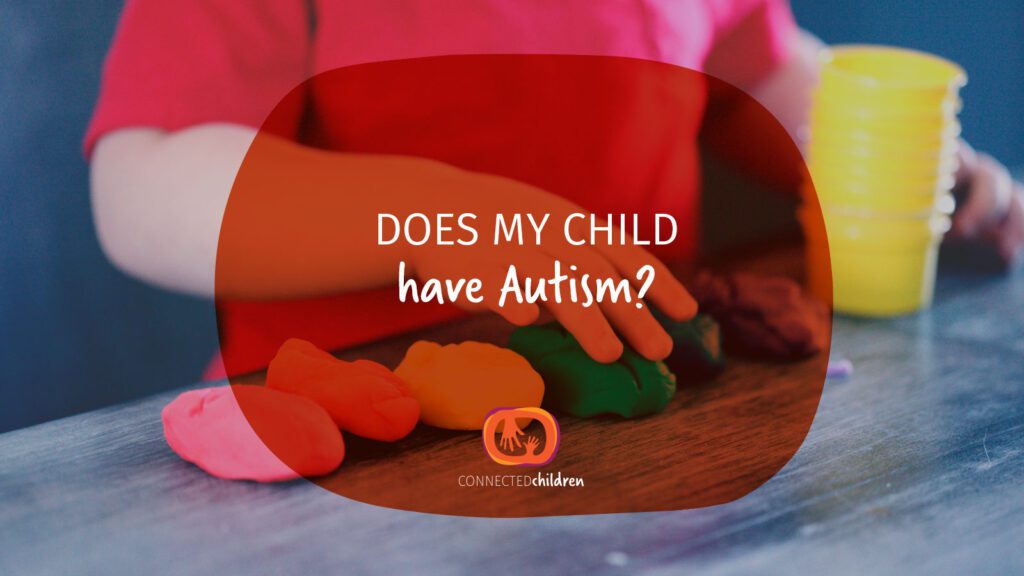
This is a common question, asked by parents and teachers alike. The diagnosis of autism can be difficult to determine due to several factors.
The process of diagnosis can take time, but also it can be an uncomfortable topic for educators or family to raise with parents or for parents to ask themselves. However, what is interesting is that once a diagnosis has been determined, parents may report feeling a sense of relief as they feel they understand their child better and are more able to meet their needs in the best way possible. This can help support their child at school and also support them participate in their community.
What if the family do not want to consider a diagnosis for their child?
It is important for educators and others involved with the child, to respect the wishes of parents who do not wish to move forward with investigating a potential diagnosis. All parents need to feel supported and respected in their choices for their child. That said, I would suggest there are several reasons it may be valuable to investigate this for your child if queried.
But first let’s consider what characteristics a child may be demonstrating that may not be related to autism.
What are the lookalike characteristics of autism?
– If a child has a language delay, particularly a pragmatic language difficulty, this means difficulty with understanding the meaning of what is being said. This may be seen in social situations when they struggle to use language appropriately in relating to others.
– Another lookalike may be an anxious child with obsessional characteristics. They may display obsessional traits such as preoccupation with certain activities or repeatedly display certain behaviours.
– Children who have experienced trauma may also display characteristics of a child with ASD. After a child has experienced trauma, in order for their body and mind to cope with the event, they display ‘survival behaviours’ or reactions to help them cope with these distressing events. This trauma may have disrupted their early development, as it is well documented that trauma can impact the typical trajectory of a child’s development. Therefore, their behaviour and social interactions may appear atypical for their age.
– The child may have sensory processing difficulties and may be quite reactive to sensory input. This may mean they have a low threshold for sensory input. This means they are highly sensitive to sensory input that others may find easier to tolerate. For example, they struggle in noisy situations, especially when they cannot escape for a break in order to settle their system.
– Another factor to consider may be the environment they are in. There may be a mismatch between the child and, for example, the teacher. If the child has a loud or intrusive class teacher and the child has a sensitive temperament, then their skills may regress. These children may withdraw and therefore be interpreted as having social difficulties.
These are just some of the factors that may look like autism.
It is important to remember that professionals have difficulty diagnosing autism in children. Therefore do not be concerned about your uncertainty in this matter. It is not a reflection on your parenting or how well you know your child. Wise parenting includes the ability to ask questions that may be at times uncomfortable. Especially if this area is uncharted territory.
The procedure of investigating a possible diagnosis of autism can be a lengthy process. Therefore it is important for you to be able to hold on to not knowing during this time. This can be hard, especially when caring family members may be requesting updates throughout this process.
On the other side, sometimes a child may meet the diagnostic criteria for ASD, however some parents may not want their child to have this diagnosis. Some parents may be consider it a ‘label’. After all, autism is considered a permanent disability and some parents may not be willing for their child to have a diagnosis. However, I encourage you to consider the support options available for your child if you do go ahead with further assessment and diagnosis. There are a range of possibilities both within the school and outside of the school to support your child, for example, in some case NDIS (National Disability Insurance Scheme). Another option for support is to access your GP who may be able to refer you to receive Medicare funding through programs such as Enhanced Primary Care and Better Access to Mental Health funding.
School options may also be available to support your child. Some schools have a specialised evidence-based educational program designed for children with ASD. If your child is misdiagnosed this program may not be in their best interests as it may not be suited to the learning needs. Therefore accurate diagnosis is essential.
Markers to consider to determine if your child has ASD:
- Your child may struggle to play or their play skills may appear delayed. They may have a limited range of interests compared to a typical child their age. They may also engage in repetitive behaviours.
- They may have difficulty in relating to others even ones they know well.
- Your child may be highly distressed in new environments. You may notice that their skills will regress when they transition or go to places they haven’t been to before. One example may be if your child always has to go home the same way. What happens if you drive home a different way?
Process for investigating a diagnosis:
Speak to your GP and they can refer you to a paediatrician for further assessment. They may suggest assessment by a therapist to ensure your child’s needs are investigated as required.
If you are a parent reading this, then I hope this has helped you to think it through and harness your expertise. Best wishes for your child and family.
For further information on diagnosis: https://iancommunity.org/cs/autism/icd10_criteria_for_autism
